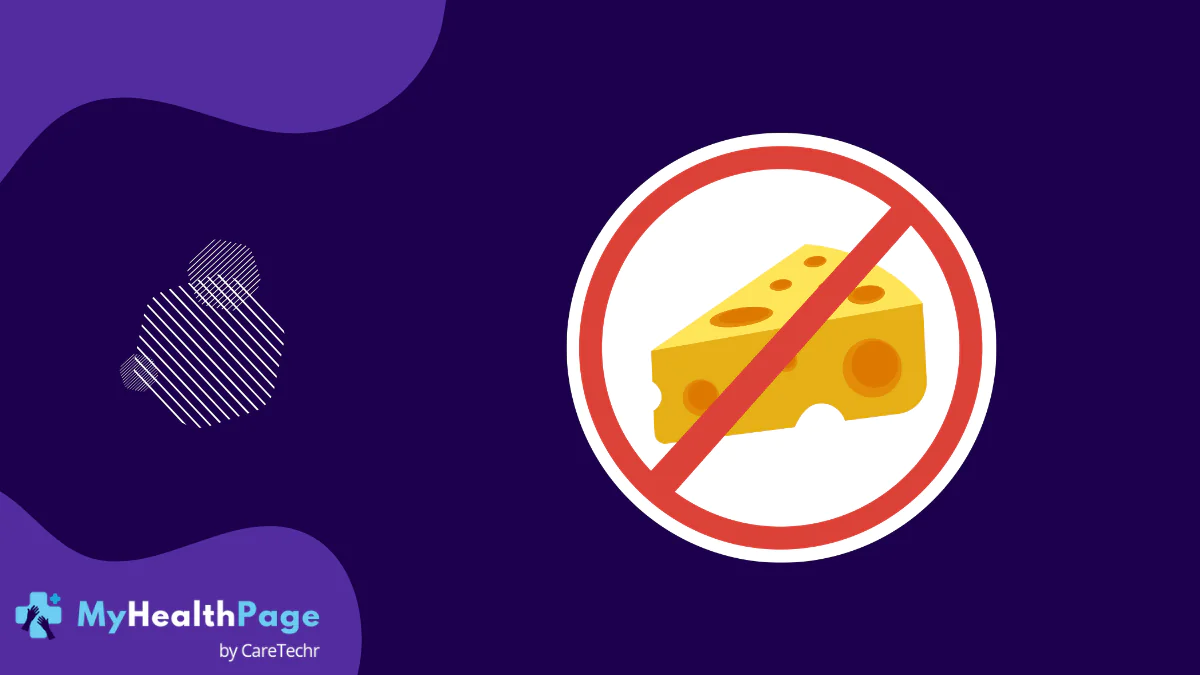Sinus congestion is an uncomfortable condition that many people face, often accompanied by pressure, headaches, and difficulty breathing. While sinus issues are frequently linked to allergies, colds, or infections, dietary factors like dairy sensitivity can also play a significant role. For some individuals, consuming dairy products can exacerbate sinus problems by increasing mucus production, triggering inflammation, or activating immune responses.
This article explores the connection between dairy sensitivity and sinus congestion, its underlying mechanisms, and actionable steps to manage symptoms for improved sinus health.
What Is Dairy Sensitivity?
Dairy sensitivity is a condition in which an individual’s body reacts negatively to dairy products. Unlike lactose intolerance, which is caused by the inability to digest lactose (a sugar found in milk), or a dairy allergy, which involves an immune reaction, dairy sensitivity is often subtler and harder to diagnose. Symptoms can range from mild digestive discomfort to systemic effects like sinus congestion or skin issues.
How Dairy Sensitivity Contributes to Sinus Congestion
For people sensitive to dairy, consuming products like milk, cheese, or yogurt can lead to sinus congestion through several mechanisms:
1. Increased Mucus Production
Dairy products are believed to thicken mucus in certain individuals, making it more difficult for the body to clear the sinuses. This can lead to a buildup of mucus, contributing to nasal congestion and sinus pressure.
2. Inflammatory Response
Dairy sensitivity may trigger inflammation in the sinus passages, leading to swelling and obstruction. This can exacerbate existing sinus issues or create a sensation of fullness and discomfort.
3. Immune System Activation
In sensitive individuals, the immune system may perceive dairy proteins as harmful, producing antibodies and releasing histamines. This immune reaction can cause nasal congestion, runny nose, and sinus inflammation, similar to allergy symptoms.
4. Digestive-Sinus Connection
Gut health and sinus health are closely linked. Inflammation or irritation caused by dairy sensitivity in the gastrointestinal tract can influence systemic inflammation, including the sinus passages.
Signs That Dairy Sensitivity Is Affecting Your Sinuses
If dairy sensitivity contributes to your sinus congestion, you may notice the following symptoms after consuming dairy products:
- Persistent nasal congestion or runny nose
- Sinus pressure or pain, especially around the forehead, eyes, and cheeks
- Post-nasal drip
- Mucus that feels thicker or harder to clear
- Frequent sinus infections or colds
- Coughing or throat irritation due to mucus buildup
These symptoms may occur within hours or even days after consuming dairy, making it challenging to identify the link without careful observation.
Who Is at Risk for Dairy-Related Sinus Congestion?
Certain factors may increase the likelihood of experiencing sinus congestion from dairy sensitivity:
1. People with Allergies or Asthma
Individuals with respiratory allergies or asthma may find that dairy exacerbates their symptoms, including sinus congestion.
2. Those with Chronic Sinusitis
Chronic sinusitis sufferers may be more sensitive to dietary triggers, including dairy, which can worsen inflammation and mucus production.
3. Individuals with Gut Health Issues
Conditions like irritable bowel syndrome (IBS) or leaky gut syndrome may increase sensitivity to certain foods, including dairy, leading to systemic inflammation and sinus congestion.
4. Family History of Food Sensitivities
A genetic predisposition to food sensitivities or intolerances can make some individuals more prone to dairy-related sinus issues.
Distinguishing Dairy Sensitivity from Other Sinus Triggers
Sinus congestion can have many causes, including environmental allergies, colds, infections, and structural issues like a deviated septum. To determine whether dairy sensitivity is a factor, consider these steps:
1. Keep a Food Diary
Track your dairy consumption and note any changes in sinus symptoms. Patterns linking dairy intake to congestion can indicate sensitivity.
2. Elimination Diet
Remove dairy from your diet for 2–4 weeks and monitor your symptoms. If sinus congestion improves, dairy may be a contributing factor.
3. Reintroduction
After the elimination period, reintroduce dairy and observe whether symptoms return. This can help confirm sensitivity.
4. Allergy Testing
Consult a healthcare provider for testing to rule out lactose intolerance, dairy allergy, or other potential triggers.
Tips for Managing Dairy-Related Sinus Congestion
If you suspect dairy sensitivity is contributing to your sinus congestion, these strategies can help manage symptoms:
1. Reduce or Eliminate Dairy
- Switch to dairy alternatives like almond milk, oat milk, or coconut yogurt.
- Check food labels for hidden dairy ingredients, such as whey or casein.
2. Stay Hydrated
- Drinking plenty of water can help thin mucus and promote sinus drainage.
- Herbal teas with anti-inflammatory properties, like ginger or chamomile, can provide additional relief.
3. Use a Neti Pot or Saline Spray
- Flushing your nasal passages with a saline solution can remove excess mucus and allergens, providing quick relief from sinus congestion.
4. Incorporate Anti-Inflammatory Foods
- Include foods rich in omega-3 fatty acids (like salmon), antioxidants (like berries), and spices (like turmeric) to reduce inflammation in the body.
5. Address Gut Health
- Support gut health with probiotics, prebiotic-rich foods, and a balanced diet to reduce systemic inflammation that may affect sinus health.
Alternatives to Dairy for Calcium and Nutrition
If you decide to eliminate or reduce dairy, there are plenty of nutritious options to ensure you meet your calcium and vitamin D needs:
Calcium-Rich Foods
- Leafy greens: Kale, broccoli, and bok choy
- Nuts and seeds: Almonds, sesame seeds, and chia seeds
- Fortified plant-based milks and juices
Vitamin D Sources
- Fortified plant-based milk
- Fatty fish like salmon or mackerel
- Supplements as recommended by a healthcare provider
When to See a Doctor
If sinus congestion persists despite dietary changes or is accompanied by other severe symptoms, consult a healthcare professional. They may recommend:
- Allergy Testing: To identify food or environmental triggers.
- Sinus Imaging: To rule out structural issues like polyps or a deviated septum.
- Medications: Such as antihistamines, decongestants, or nasal steroids for symptom management.
Myths About Dairy and Sinus Congestion
Myth 1: Dairy Causes Mucus in Everyone
Fact: While dairy may thicken mucus for some individuals, it doesn’t universally cause congestion. Sensitivity varies from person to person.
Myth 2: Lactose-Free Dairy Won’t Affect Sinuses
Fact: Even lactose-free dairy contains proteins like casein, which may trigger sensitivity and sinus symptoms in some people.
Myth 3: Cutting Out Dairy Is the Only Solution
Fact: Reducing dairy intake can help, but other factors like hydration, gut health, and nasal hygiene also play a role in managing sinus congestion.
FAQs About Dairy Sensitivity and Sinus Congestion
1. Can dairy sensitivity develop later in life?
Yes, food sensitivities can develop at any age due to changes in gut health or immune function.
2. Does yogurt trigger sinus congestion?
While yogurt contains beneficial probiotics, it’s still a dairy product and may worsen symptoms for those with dairy sensitivity.
3. How long does it take for sinus symptoms to improve after eliminating dairy?
Improvements may be noticeable within a few days to a few weeks, depending on the severity of sensitivity.
4. Are there tests to confirm dairy sensitivity?
While there’s no definitive test for sensitivity, elimination diets and food allergy testing can provide valuable insights.
5. Can plant-based milk fully replace dairy?
Yes, fortified plant-based milks can provide similar nutrients without triggering sensitivity-related symptoms.
Conclusion
Dairy sensitivity is a potential but often overlooked contributor to sinus congestion. For some individuals, consuming dairy products can lead to increased mucus production, inflammation, and sinus discomfort. Identifying the connection through careful observation and dietary adjustments can significantly improve symptoms and overall sinus health.
Read Also: Prolonged Sitting Can Exacerbate Sciatica Pain: Causes, Effects, and Relief Tips
Medical Disclaimer: This article is for informational purposes only and is not a substitute for professional medical advice. Always consult with a healthcare provider for personalized recommendations.

















